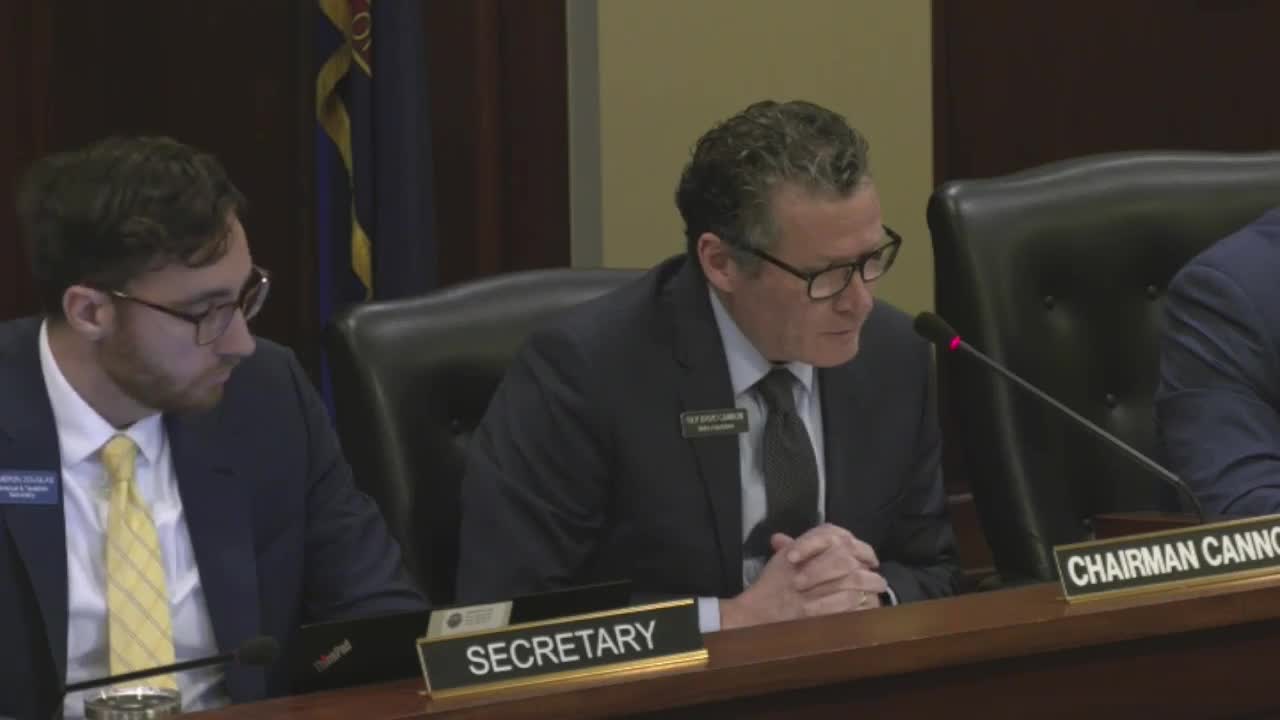House committee holds HB 74 and advances RS 32441 to make $100 million in property-tax relief ongoing
Get AI-powered insights, summaries, and transcripts
Subscribe
Summary
The House Revenue and Taxation Committee on Feb. 21 held public testimony and then voted to hold House Bill 74 in committee and to introduce RS 32441, a sponsor-drafted substitute that would convert a one-time homeowners tax-relief allocation into ongoing funding and add $50 million to the school facilities fund.
The House Revenue and Taxation Committee on Feb. 21 held public testimony and then voted to hold House Bill 74 in committee and to introduce RS 32441, a sponsor-drafted substitute that would convert a one-time homeowners tax-relief allocation into ongoing funding and add $50 million to the school facilities fund.
Representative Jason Monks, sponsor and a Republican from District 22, told the committee the two measures are intended to preserve the original dollar amounts while changing the duration of one portion from one-time to ongoing. "The new RS does the exact same thing, both of those ongoing," Monks said, adding that the changes simplify language by pulling both allocations from the same source.
The measures trace to House Bill 292, which established two property-tax relief accounts: a School Facilities Fund and a Homeowners Property Tax Relief Account. Monks told the committee the School Facilities Fund is applied in a cascading sequence that pays school bonds and levies first, and that some funds "come out to the bottom" for districts with few bonds or levies. He said about $17 million currently falls to the bottom and that the added $50 million would yield roughly another $6 million available to districts for maintenance or other uses.
Monks summarized the split: one $50 million increment would flow into the School Facilities Fund, which benefits all property taxpayers in a district; the other $50 million would go to the homeowners account, which benefits property owners with a homestead exemption. "This legislation adds $50,000,000 to each of those accounts," he said.
Committee members pressed on fiscal trade-offs and long-term effects. Representative Raybould questioned whether the state should use sales-tax revenue to offset locally set property taxes and whether doing so masks unresolved local-government tax issues. "Are we essentially creating a situation where we're establishing that other funds that are not necessarily property taxes are being used to offset the costs associated with running local entities?" Raybould asked.
Representative Birch voiced reservations about sustainability and the broader budget picture, noting other recent tax changes and exemptions. Birch said the committee is shifting money from the general fund and highlighted reports the committee members cited about sales-tax exemptions and other revenue exclusions. "This will not provide the property tax relief that people may think it is because there are, if it's paying off old school bonds, there's need for additional school bonds to meet current and future needs," Birch said.
Representative Ehlers moved the motion to introduce RS 32441 with a recommendation to the second-reading calendar; the motion passed on a voice vote. Earlier, Representative Shepherd moved to hold House Bill 74 in committee; that motion also passed on a voice vote.
Remote public testimony came from Lisa Anderson of ARP Idaho, who urged support for House Bill 74, saying property tax is "the most burdensome tax for low income and older Idahoans to absorb" and that relief helps older homeowners on fixed incomes.
Committee members framed the proposals as an attempt to provide property-tax relief while acknowledging limits on state and local roles. Monks said the state has a historical role because the sales tax was initially devised to replace certain property taxes and that increasing state support for school facility costs could eventually reduce pressure on local bond and levy requests. Other members warned the change reduces general-fund flexibility and urged a broader review of exemptions and long-term school-maintenance backlogs.
The committee recorded the following formal actions: it held House Bill 74 in committee and introduced RS 32441 with a recommendation to the second-reading calendar. The committee did not record roll-call vote tallies in the transcript; outcomes were announced by voice vote. The committee adjourned after completing both items.
